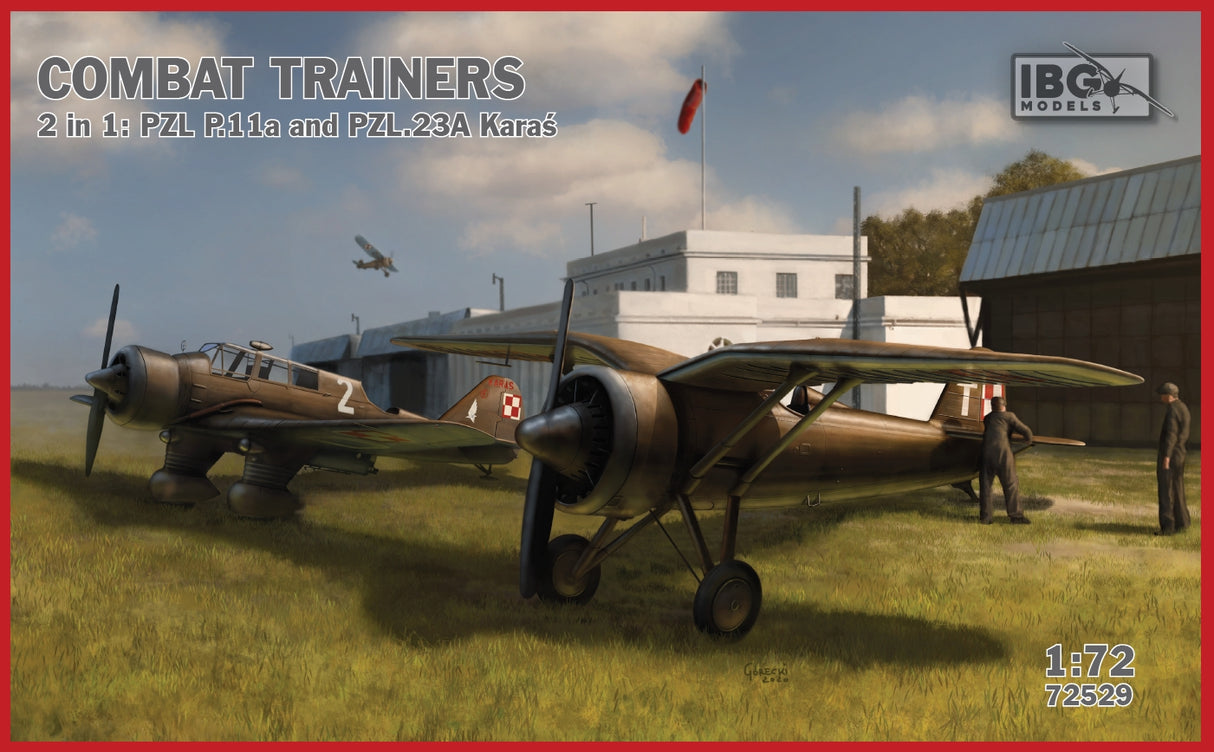IBG Models Polish Combat Trainers 2 in 1 PZL P11a and PZL23A Karas 72529
IBG Models Polish Combat Trainers 2 in 1 PZL P11a and PZL23A Karas 72529 will be backordered from our supplier. Delivery will take between 3-5 working days & orders will be despatched once completed.
Sign up to be the first to know when this product is back in stock!
Description
Description
PZL P.11a Polish Fighter Plane
P.11 fighter plane was designed as a development of the inż. Z. Puławski’s P.6 construction. After Puławski’s death in March 1931 his main cooperator, inż Wsiewołod Jakimiuk, took charge of the development of the fighter plane. P.6 construction was changed so the 700hp engine could be used. Despite the fact that consecutive prototypes were constantly modified, the producer was able to send them to international air contests and achieve successes: second place in International Air Meeting in Zurich in 1932 and the highest speed in National Air Race contest in Cleveland in USA (plane was disqualified due to a misunderstanding). PZL construction was notices by the whole world, which resulted in the orders of the future versions of the plane from Poland and from abroad.
In 1933 a P.11a version with the Bristol Mercury IV engine was developed for Polish Airforce. This machine passed the tests in spring the same year, which resulted in the order of 30 planes, later increased to 50. The production was delayed because of the order of P.11b for Romanian Airforce, PZL was able to start P.11a variant in spring 1934. Producing the whole order took several months and ended in summer of the same year.
Polish Airforce Fighter Squadrons were still employing P.11a planes in 1939. They took part in the Defence War since its start to the very last days and the evacuation forced by the Soviet attack on 17th September. After the evacuation several surviving machines joined the ranks of Romanian Airforce, used as school planes. One plane ended up in Hungarian Airforce, where after the military trials it was employed to pull the gliders in aeroclub.
None of the P.11a planes have survived until today.
PZL 23A Karaś
PZL.23 Karaś was a Polish light bomber and a reconnaissance aircraft. Serial production of the A version started in 1936 with a total of 40 planes constructed. B variant, with a different engine, was being produced between 1936 and 1938, with 240 machines finished. Polish Aircraft bomber and reconaissance squadrons received the PZL.23B planes, while the A variant machines were moved to aviation schools. Karaś was the main Polish bomber plane used during the September 1939 German invasion of Poland. PZL.42 was an attempt on creating a modernized replacement for the PZL.23 aircraft. Only one prototype was built in 1936.
Payment & Security
Payment methods
Your payment information is processed securely. We do not store credit card details nor have access to your credit card information.


